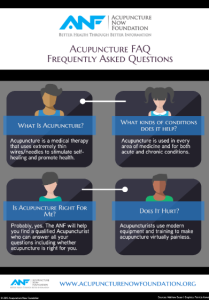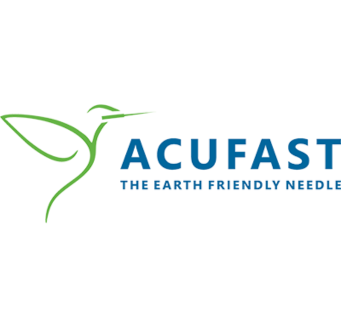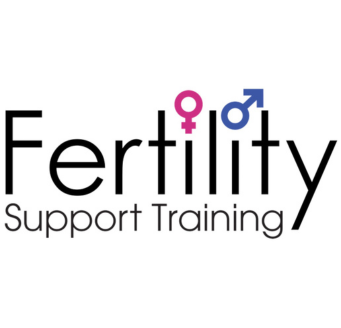What is acupuncture?
Acupuncture is a medical therapy that uses extremely thin wires/needles to stimulate self-healing and promote health.
Acupuncture is a medical therapy that uses extremely thin wires/needles to stimulate self-healing and promote health.
How does acupuncture work?
By stimulating specific points on the body with heat, pressure, or very fine needles, acupuncture practitioners help the body to restore healthy function, often resolving symptoms and easing or preventing disease. In the video below learn more about how acupuncture works and what to expect from treatment.
By stimulating specific points on the body with heat, pressure, or very fine needles, acupuncture practitioners help the body to restore healthy function, often resolving symptoms and easing or preventing disease. In the video below learn more about how acupuncture works and what to expect from treatment.
What kinds of conditions does it help?
Acupuncture can be used in every area of medicine and for both acute and chronic conditions. In the video below, learn more about what acupuncture can and can’t do, and some of the possible side effects
Acupuncture can be used in every area of medicine and for both acute and chronic conditions. In the video below, learn more about what acupuncture can and can’t do, and some of the possible side effects
Does it hurt?
Acupuncture needles can be as thin as a human hair or almost as thick as a hypodermic needle and different acupuncturists use different needling techniques. As a general rule, the thinner the needle, the less sensation one feels.
Around 50 years ago, Japanese acupuncturists started using ultra-thin wires and very gentle needling techniques. Most acupuncturists in the West have adopted the Japanese style ultra-thin wires and gentle techniques. The average sensation of this approach is less than having a single hair plucked from one’s head and the strongest sensation is like having a single eyebrow plucked. Sometimes people do not feel the wires at all!
Many Chinese or Chinese trained acupuncturists use somewhat thicker needles and a relatively stronger needling technique and try to elicit a dull sensation called “da qi”. These treatments tend to cause more sensation and sometimes can be like getting an injection although any soreness eases more quickly than an injection.
We recommend that you ask your acupuncturists what type of needles and technique they use if you are concerned about the procedure being painful.
Acupuncture needles can be as thin as a human hair or almost as thick as a hypodermic needle and different acupuncturists use different needling techniques. As a general rule, the thinner the needle, the less sensation one feels.
Around 50 years ago, Japanese acupuncturists started using ultra-thin wires and very gentle needling techniques. Most acupuncturists in the West have adopted the Japanese style ultra-thin wires and gentle techniques. The average sensation of this approach is less than having a single hair plucked from one’s head and the strongest sensation is like having a single eyebrow plucked. Sometimes people do not feel the wires at all!
Many Chinese or Chinese trained acupuncturists use somewhat thicker needles and a relatively stronger needling technique and try to elicit a dull sensation called “da qi”. These treatments tend to cause more sensation and sometimes can be like getting an injection although any soreness eases more quickly than an injection.
We recommend that you ask your acupuncturists what type of needles and technique they use if you are concerned about the procedure being painful.
Is acupuncture right for me?
Probably, yes. The ANF will help you find a qualified acupuncturist who can answer all your questions including whether acupuncture is right for you.
Probably, yes. The ANF will help you find a qualified acupuncturist who can answer all your questions including whether acupuncture is right for you.






